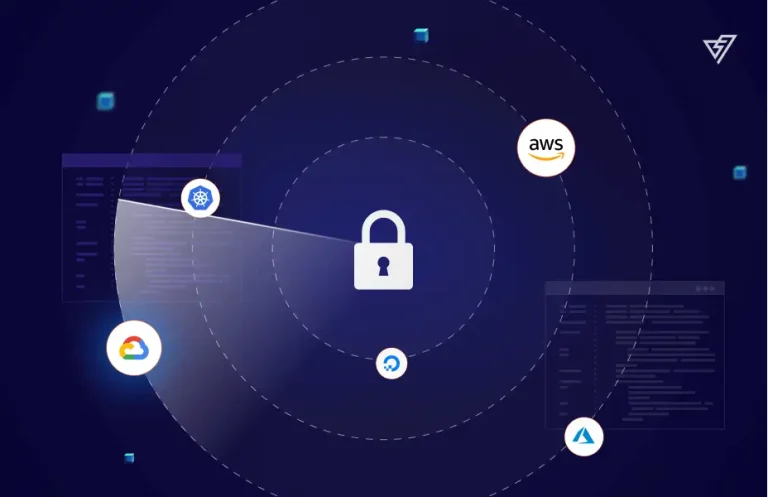As cloud computing continues to dominate the IT landscape, organizations face the challenge of securing their cloud environments effectively. Traditional security approaches often rely on deploying software agents within the cloud infrastructure, which can introduce complexities and performance overhead. However, a promising alternative has emerged: agentless cloud security. In this blog post, we will explore the concept of agentless cloud security, its key features, benefits, and why it is crucial for organizations in the modern digital landscape.
Understanding Agentless Cloud Security
Agentless cloud security refers to a security approach that operates without the need for installing dedicated software agents within the cloud infrastructure. Unlike agent-based security solutions that require software to be installed on individual virtual machines or instances, agentless security solutions leverage the cloud provider’s native security capabilities and APIs to monitor and protect the cloud environment. This eliminates the need for additional software installations, simplifying deployment and management.
Key Features and Benefits of Agentless Cloud Security
Agentless cloud security offers several significant features and benefits that make it a compelling choice for organizations:
a. Simplified Deployment and Management: With agentless security, there is no need to manually install and manage security agents on each virtual machine or instance. This streamlines the deployment process, reduces administrative overhead, and accelerates time-to-value.
b. Improved Performance and Resource Efficiency: Agentless solutions operate at the hypervisor or API level, allowing for centralized management and control across multiple instances. By avoiding the resource consumption and performance impact associated with running security agents on individual machines, agentless solutions can deliver better performance and resource utilization in the cloud environment.
c. Centralized Visibility and Control: Agentless security solutions provide centralized visibility and control across the entire cloud infrastructure. This allows organizations to enforce security policies consistently, monitor the environment from a single console, and detect and respond to threats more efficiently.
d. Scalability and Elasticity: As cloud environments scale up or down, agentless security solutions can seamlessly adapt to the changes without the need for manual agent installations or reconfigurations. This scalability ensures that security measures remain effective and efficient as the cloud environment evolves.
e. Reduced Complexity and Compatibility Concerns: Agentless security eliminates the compatibility issues that can arise when managing multiple agents across different operating systems or cloud platforms. This simplifies security management, reduces potential points of failure, and ensures consistent security across diverse cloud environments.
Importance of Agentless Cloud Security
Agentless cloud security is important for several reasons:
a. Agility and Flexibility: In dynamic cloud environments, where resources are provisioned and deprovisioned rapidly, agentless security provides agility and flexibility. It allows security measures to adapt seamlessly to changes in the cloud infrastructure, enabling organizations to scale their operations efficiently.
b. Reduced Security Risk: By leveraging native cloud security features and APIs, agentless security solutions provide robust protection against emerging threats. They help organizations stay ahead of potential security risks, maintain compliance with regulatory requirements, and protect sensitive data stored in the cloud.
c. Cost-Effectiveness: Agentless security eliminates the need for purchasing, deploying, and managing additional software agents. This reduces licensing costs, infrastructure requirements, and administrative overhead, resulting in cost savings for organizations.
d. Compliance and Auditing: Agentless security solutions provide centralized monitoring and auditing capabilities, allowing organizations to demonstrate compliance with industry regulations and internal security policies. They provide the necessary visibility and reporting tools to assess security posture, detect vulnerabilities, and respond to audits effectively.
e. Simplified Management and Operations: Agentless security reduces the complexity associated with managing multiple agents across different cloud environments. It provides a unified view of the security landscape, simplifies policy enforcement, and streamlines security operations, enabling security teams to focus on strategic initiatives rather than the operational challenges of managing individual agents.
Best Practices for Implementing Agentless Cloud Security
To maximize the benefits of agentless cloud security, organizations should consider the following best practices:
a. Evaluate Compatibility: Ensure that the chosen agentless security solution is compatible with the cloud provider(s) being used. Verify that it supports the necessary APIs and integrates seamlessly with the cloud environment to leverage native security capabilities effectively.
b. Define Security Policies: Clearly define and implement security policies that align with organizational objectives and compliance requirements. This includes specifying access controls, network segmentation, encryption protocols, and incident response procedures.
c. Implement Continuous Monitoring: Set up robust monitoring mechanisms to detect and respond to security threats in real-time. Leverage the capabilities of the agentless security solution to monitor system logs, network traffic, and user activities, and configure alerts and notifications for timely incident response.
d. Regularly Update and Patch: Stay up-to-date with the latest security updates and patches provided by the agentless security solution vendor. Regularly review and apply patches to address any vulnerabilities or emerging threats.
e. Employee Education and Awareness: Provide comprehensive training and awareness programs to educate employees about the importance of security in the cloud environment. Promote best practices, such as strong password management, secure data handling, and adherence to security policies.
Conclusion
Agentless cloud security offers a streamlined and efficient approach to securing cloud environments without the need for additional software agents. By leveraging the native security capabilities and APIs provided by cloud providers, organizations can simplify deployment, enhance performance, and achieve centralized visibility and control. The importance of agentless cloud security lies in its ability to provide agility, reduce security risks, lower costs, facilitate compliance, and simplify security management and operations. By adopting agentless security solutions and following best practices, organizations can strengthen their cloud security posture and confidently embrace the benefits of cloud computing in a secure manner.

